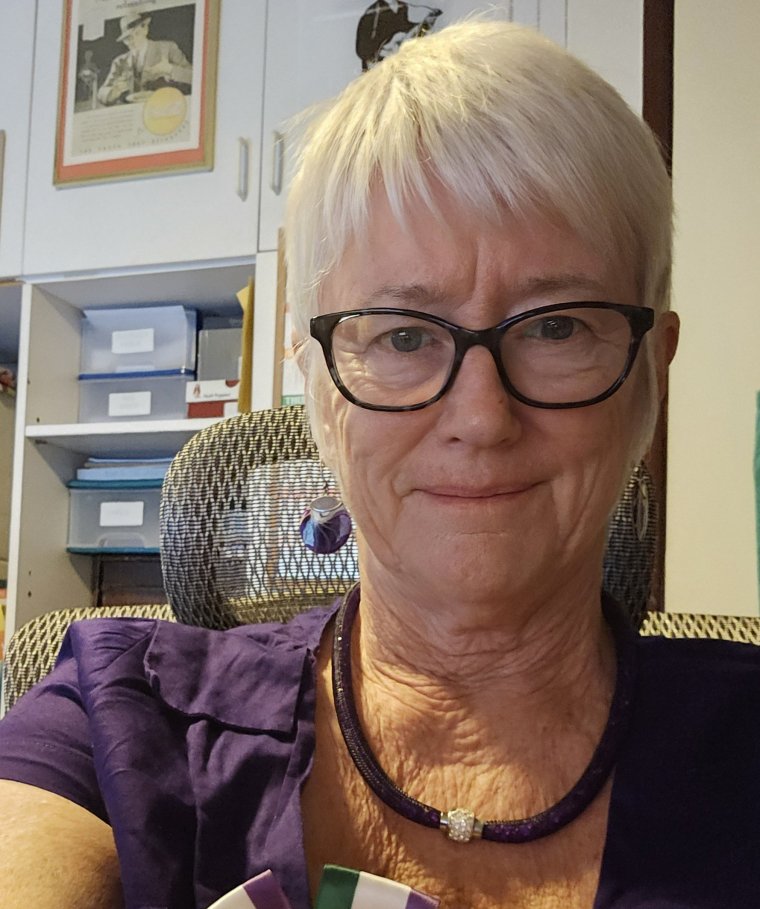After decades of hard work, many of us dream of retiring abroad. But for British women born in the 50s, that dream turned sour.
An estimated 3.8 million so-called ‘Waspi‘ women had their retirement plans thrown into chaos when the State Pension age changed from 60 to 65 to be equal with men – it then increased to 66 for both sexes.
On Wednesday, the DWP has indicated that the affected women can expect to receive compensation ranging from £1,000 to £2,950 – a figure much lower than the £10,000-plus that campaigners had hoped for.
Waspis say it left them with insufficient time to prepare for up to six years longer without their pension, and that this caused them lasting financial problems, as well as affecting their health and emotional wellbeing.
Many have been forced to work longer into old age or drain their life savings.
For numerous women who moved overseas, the financial fallout has meant that they needed to work, but faced challenges doing so in a foreign land. Furthermore, ex-pats in certain countries have had their pensions frozen, meaning they will not see their annual amounts adjusted for inflation.
Rishi Sunak announced on Wednesday that a snap general election will take place this summer. Both the Conservative and Labour have said they are committed to retaining the triple lock.
‘This put a huge financial burden on us – I had to sell my home’
Christine Maywood moved to Spain at 47. “We had calculated that getting my pension at 60 would mean that we would be financially stable and able to live in Spain for the rest of our lives,” she said
“My husband is six years older than me so we knew he would get his pension sooner than me at 65.”
She was shocked to receive a letter at the age of 56 to say she wouldn’t get her state pension until 65. The further increase until age 66 she read about in the press.
Christine, now 66, suffers with scoliosis of the spine, which prevented her going back to work. “We exhausted any savings that we had,” she said.
“This put a huge financial burden on us as a family and in fact we decided to sell our home here in Spain so that we could live off the proceeds to keep us going,” she said. “We are now renting.
“Finding work here in Spain was almost impossible. I had a good job before leaving the UK but my skills here unless I could speak the language fluently were useless.
“We lived in a rural area so it was not even possible to look for bar or restaurant work.
“We did consider moving back to the UK to start working again but we could not really afford to move back.”
Christine, who is originally from Sale, Cheshire, said the compensation sum is “insulting”. She told i: “I have personally lost out on £50,000. I have paid full contributions. We are not asking for handouts, just what was rightfully ours.”
‘My pension is frozen too, which is a double whammy’

Stef Hayward had a pension forecast in 1994 that indicated she could retire comfortably at 60. She then moved to Perth, western Australia in 2001 with the plan to enjoy her golden years in the sun.
But in 2012, when she was aged 58, she received a letter to say wouldn’t be entitled to her pension until 65.
“I had divorced my first husband and ended up with very little,” she said. “I didn’t have access to his company pension.
“My pension is frozen too, which is a double whammy.”
The State Pension will only increase each year if you live in the European Economic Area (EEA), Gibraltar, Switzerland and certain countries that have a social security agreement with the UK such as the US.
But most British Commonwealth countries are in the frozen list, including Australia, Canada and South Africa.
Pensions minster Paul Maynard has said the DWP has “no plans” to uprate frozen state pension payments for more than half a million UK expats.
An increase in April of 8.5 per cent means people on the full New State Pension will receive £221.20 each week while those on the full Basic State Pension will get £169.50 each week.
But Stef, originally from Bournemouth and now 70, only gets £144.77 a week. “Why does it make any difference where we live? We’ve still paid into the system,” she said.
The retired youth justice worker also had gaps in her National Insurance record due to looking after children, which she says is now thankful that she made voluntary contributions to compensate for. “It’s not an equal playing field for women, not by a long way.”
Do you have a real life story? Email claudia.tanner@inews.co.uk.



Maurice Saatchi: I used to adore capitalism – then I had lunch with Margaret Thatcher